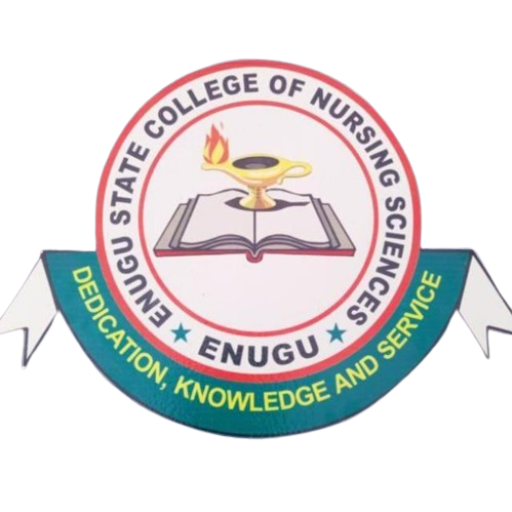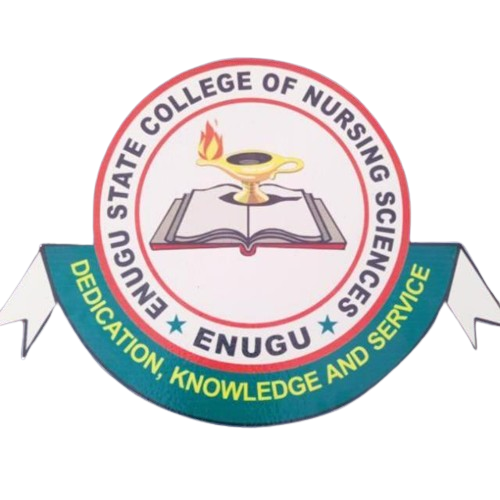The main objective of the movement of Nursing Education into Enugu State College of Nursing Sciences Agwu in collaboration with National Board for Technical Education (NBTE) is to ensure that Nursing and Midwifery education in Nigeria, evolve in line with the National Policy on Education and the contemporary system of education in Nigeria. This is in order to give legal backing by the Federal Government to Nursing institutions for the award of ACADEMIC CERTIFICATES to Nursing graduates.
Basic Nursing Program
This is a 3 years, 6 semesters Basic Midwifery programme, approved by the Nursing and Midwifery Council of Nigeria (NMCN) and run by Enugu State College of Nursing Sciences Agwu Campus (ESCONSAGWU). It is designed to train students male or female on practical midwifery skills and exposes them to the knowledge and clinical experience they need to become a Registered Midwife (RM). Registered Midwife (RM) provides support, care and advice before, during and after pregnancy, labour and postpartum (after birth) period; this care includes preventative measures, the promotion of normal birth, the detection of complications in mother and child, the accessing of medical care or other appropriate assistance and the carrying out of emergency measures. Registered Midwife (RM) also conducts births and provide care for the newborn and the infant. They also provide family planning and preconception care as well as conduct prenatal exams and order tests.
Registered Midwives (RM) can work in any Tertiary Healthcare Institutions (e.g National Hospital, Federal Medical Centers etc), Secondary Healthcare Institutions (e.g General Hospitals), Primary Healthcare Institutions, (Primary Health Care, Comprehensive Health Care) and Maternal and Child Hospitals in the world.
<>
Post Basic Nursing Admission Requirements
- Candidates must possess at least five (5) credits at not more than two (2) sittings including English Language, Mathematics, Biology, Chemistry and Physics in WAEC, NECO and/or NABTEB. Combination of WAEC/WAEC, NECO/NECO, WAEC/NECO is acceptable. NABTEB cannot be combined with WAEC or NECO or another NABTEB. If candidate will use NABTEB, she must have all the required 5 credits in it.
- Qualified candidates will be required to write an Entrance Exam to be conducted by the College.
- Candidates successful at the Entrance Exam will be invited for an interview to be conducted by the College
- Candidates successful at the interview will be offered provisional admission into Basic General Midwifery programme at the College Agwu Campus.
- Candidates admitted into the Basic General Midwifery Programme will undergo intensive training/lecture in Basic Sciences, Nursing and Midwifery Courses for six months. Thereafter an Introductory Examination for the First Semester will be conducted by the College Agwu Campus.
- Only successful students at the Introductory Exam will be Indexed by the Nursing and Midwifery Council of Nigeria and the unsuccessful students will be withdrawn.

Basic Nursing
This is a 3 years, 6 semester basic nursing programme, approved by the Nursing and Midwifery Council of Nigeria (NMCN) and run by the three (3) College Satellite Campuses, namely; College of Nursing Sciences Abeokuta, College of Nursing Sciences Ijebu Ode and College of Nursing Ilaro. It is designed to train students in practical nursing skills and give them the knowledge and clinical experience they need to become registered nurses.
Students will be trained on practical nursing skills and they will acquire the knowledge and skills and also gain the clinical experience they need to become a Registered Nurse (RN). Registered Nurse (RN) provides support, care and advice to patients with medical and surgical conditions; this care includes taking vital signs, monitoring patients, administering medications, taking patient records and providing health education etc. They also offer advice and emotional support to patient and their families as well as follow-up care.
Registered Nurses can work in any Tertiary Healthcare Institution (e.g. National Hospital, Federal Medical Centers etc), Secondary Healthcare Institutions (e.g. General Hospitals) and Primary Healthcare Institutions (Primary Health Care, Comprehensive Health Care) in the world.
-
Basic Nursing Admission Requirements
- Candidates must possess at least five (5) credits at not more than two (2) sittings including English Language, Mathematics, Biology, Chemistry and Physics in WAEC, NECO and/or NABTEB. Combination of WAEC/WAEC, NECO/NECO, WAEC/NECO is acceptable. NABTEB cannot be combined with WAEC or NECO or another NABTEB. If candidate will use NABTEB, she must have all the required 5 credits in it.
- Qualified candidates will be required to write an Entrance Exam to be conducted by the College.
- Candidates successful at the Entrance Exam will be invited for an interview to be conducted by the College
- Candidates successful at the interview will be offered provisional admission into Basic General Midwifery programme at the College Agwu Campus.
- Candidates admitted into the Basic General Midwifery Programme will undergo intensive training/lecture in Basic Sciences, Nursing and Midwifery Courses for six months. Thereafter an Introductory Examination for the First Semester will be conducted by the College Agwu Campus.
- Only successful students at the Introductory Exam will be Indexed by the Nursing and Midwifery Council of Nigeria and the unsuccessful students will be withdrawn.
Competencies of the graduates
At the end of the programme, the graduand are expected to have acquired proficient skills in carrying out all nursing duties including attending to emergency situations with little or no supervision. Specifically, they are expected to;
-Identify the health needs of individuals of all ages and in all settings.
-Utilize the nursing process and other tools of nursing to identify and respond to individuals and groups and assist them adapt to changing health needs.
- Implement nursing care proficiently and effectively for the safety of the patient.
-Develop strategies for Health Education to meet the health needs of client/ patient, family and the community.
-Initiate and carry out research to improve evidence-based practices to meet the health needs of the people.
-Utilize information and communication technology (ICT) in solving day to day health challenges
Classroom and clinical experience
Our students are exposed to both classroom and clinical experiences. These areas involve; community postings, lectures, tutorials, seminars, case study and project writings, psychiatric postings, Ear, Nose, and Throat (ENT) postings, Orthopaedics, Obstetrics and Gynaecology postings and others.

